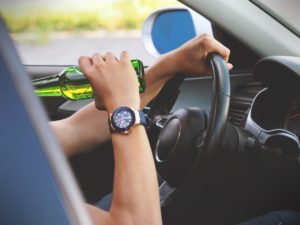 There is a wide difference between high bottom drunks and low bottom drunks.
There is a wide difference between high bottom drunks and low bottom drunks.
For example, as a high bottom drunk, you’re capable of attending school, getting good grades and working. You are totally functioning and excelling in life, besides the fact that during your free time you drink excessive amounts of alcohol.
As a low bottom drunk, you aren’t quite as lucky. It’s clear that you are having trouble with your addiction, whether it be getting arrested, being homeless or stealing from your family.
It’s understood that low bottom drunks hit rock bottom faster and admit they need help more easily. High bottom drunks are more stubborn with the fact they need help. They think since they are still functioning, they don’t have a problem. This is one of the biggest myths with any kind of addiction. Just because you’re trucking through life without problems doesn’t mean you don’t have a problem yourself.
High Bottom Drunks
I get it. We all get it. You are managing to control your responsibilities AND drink. And you might think, since you’re managing your life well, how do you have a problem?
As a high bottom drunk, you might not feel like you fit in an AA meeting. As the stereotype for alcoholics are, they are drinking cheap liquor from a brown bag, never really sober at any point of the day, homeless or couch surfing, and don’t take care of their personal hygiene. But the fact is, just because they show a more obvious problem, doesn’t mean you don’t have a problem. If you are actively drinking an excessive amount of alcohol, you do have a problem.
High Risk Professions
Health Care professions have a high chance of substance abuse because of the industry they work in. With easy access to medicine, they can be tempted to take some themselves. 10-15% of healthcare professionals will abuse drugs at some point in their career.
The Sales industry has a high chance of substance abuse for a few different reasons. Traveling is a big part, especially traveling for work and away from family. If you work in a company that is required to travel, it can higher depression and cause substance abuse. Other factors can include your pay, customers, or hard work that isn’t being rewarded.
People in this industry are likely isolated on the job. With isolation, it can cause depression and it can also link to substance abuse. It also doesn’t help being away from family and the comfort of a stable place to go.
Whether you work for the police, or other law firms, there is a high chance to abuse substances. With enforcing laws also comes a lot of stress. It’s a tough job to do, you might have bad days and it can cause depression and/or substance abuse.
Restaurants have an “in” with alcohol. A lot of restaurants have a full service bar, or something close to that. And sometimes restaurants will allow you a free drink after your shift to wind down. Even if they don’t, you might still be inclined to stay late for a drink or two. You might even be inclined to drink on the job for the convenience.
If you are a functioning alcoholic, you still need as much help as a non-functioning alcoholic. Just because you can still go to work, take care of your kids or do other responsibilities doesn’t mean you don’t have a problem.
Recognizing a High Bottom Drunk/Addict
Most high bottom drunks/addicts will be in denial. They are still functioning every day responsibilities, so how can they have a problem if they are still moving forward? If you discuss the chance they can be addicted, and they immediately go into denial, that is a red flag.
PATTERNS AND BEHAVIOURS
If you notice a change of behavior, this can be an alarming flag of addiction. If their mood changes, avoid or forget social events, can’t keep their hands still, lack of focus, or calling in sick, these are behaviors of an addict. They might also miss deadlines and fail to fulfill family obligations. It won’t happen a lot, but functioning addicts will have mistakes here and there that can indicate their problem.
EXCUSE, EXCUSE, EXCUSE!
It’s no denying that addicts make up excuses on the go. If you are noticing a pattern of excuses from a fellow coworker, it can be a red flag to addiction. Whether it be getting drunk with coworkers because she wanted to fit in, or drinking a glass to unwind at the end of the day, or popping pills at work to boost productivity, it’s always an excuse for something. If you are weary of someone who has a problem, and they make excuses for this and that, it can be an addiction.
DOUBLE LIFE
Many high bottom addicts will seem so put together, but behind the smile is a saddened version of themselves. They might be thinking of their next drink or smoke, or contemplating if they have a problem or not. They might be depressed or craving something. You don’t know what’s inside an addict’s mind, but they might not want you to know anyway. They might be looking for their rock bottom, but since they are functioning normally, it might not ever happen. It could gradually become worse, but you don’t know if one day you’ll be alive and well and the next you’re dying from a car accident from drinking.
DON’T IGNORE THE SIGNS
Even if you know someone who doesn’t show the signs of addiction doesn’t mean they don’t have one. If you have the slightest idea they might have a problem, act up. High bottom addicts can be really hard to work with. Stop any enabling you might be doing, consult in an interventionist and let them help your friend. Ignoring the signs can result in a very bad situation, and they aren’t just a danger to themselves, they are a danger to others, too.


